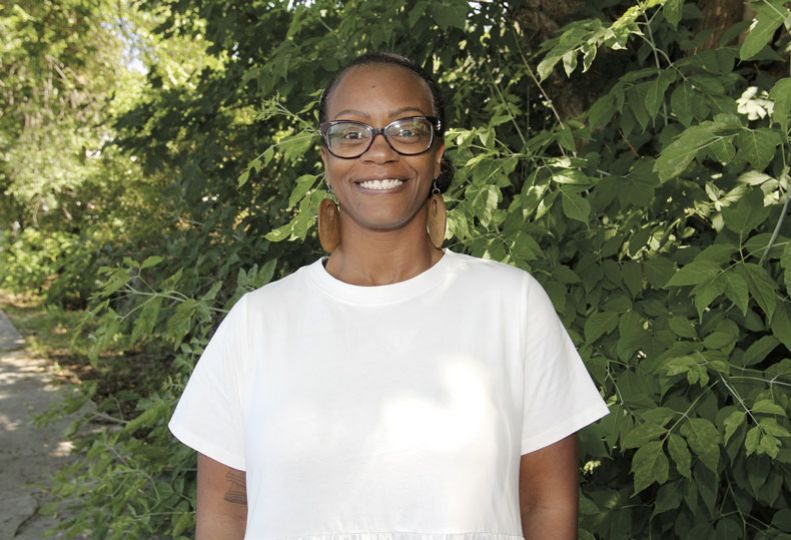
Home » Providential Solutions emphasizes DEI in therapy
Providential Solutions emphasizes DEI in therapy
Small counseling practice established to fill void

July 6, 2023
Charina Carothers, a licensed independent clinical social worker and owner of Providential Solutions LLC, says she has had clients reach out to her because they need someone who understands what it is like to be of a different ethnicity.
“Anecdotally, I can tell you that there is only a handful of us,” she says. “There’s all these people in the community saying they want a Black therapist, and guess what, I do too.”
Carothers, who started her mental health practice in 2021, says one of the reasons there are so few therapists or clinicians of color can sometimes be attributed to the costs associated with becoming licensed.
According to the Washington state Department of Health, candidates for the licensed independent clinical social worker must complete a total of 4,000 hours of postgraduate supervision experience over a minimum period of three years, with 1,000 of those hours directly treating clients under the supervision of a licensed social worker. As a Black clinician, she hopes to supervise others who need to complete their hours.
In addition, she hopes to connect with other therapists of diverse backgrounds and form a cooperative in which she and her colleagues can refer clients and share in continuous professional learning.
Carothers, 44, grew up in a military family that moved to the Spokane area in the early 1990s when her father began work at Fairchild Air Force Base. She received her bachelor’s degree in social science from Washington State University and her master’s degree in social work from Eastern Washington University.
Carothers meets with her clients on Saturdays at her 150-square-foot office, Providential Solutions, located in the Emmanuel Family Life Center building at 631 S. Richard Allen Court, in the South Perry District. She currently has six clients and a projected annual revenue of about $25,000.
Providential Solutions accepts a few forms of insurance, such as Medicaid and Medicare, and charges uninsured clients on a sliding scale based on their income.
She plans to expand her practice to include time slots on Tuesdays and Thursdays after she completes her doctorate in social work through Walla Walla University.
However, Carothers says she doesn’t plan to become a full-time practitioner.
“I do this now because I want to. I feel it’s just part of my gift that I want to share,” she says.
During the week, Carothers works full time as the director of equity and belonging for the Alliance for Professional Development, Training, and Caregiver Excellence, an organization that provides professional development to child-welfare professionals and caregivers statewide. In that role, she also supervises a staff of four that currently is revising policies and developing training programs relating to the federal Indian Child Welfare Act.
Her work at the Alliance focuses on diversity, equity, and inclusion and informs her approach to clients as a clinician, she says.
Carothers, who was a social worker for nine years with the Washington state Department of Children, Youth & Families—previously the Division of Children and Family Services—says she also wanted to become a licensed clinician, because as a social worker, she noticed many of her clients needed that type of assistance, but she couldn’t help them in that capacity.
“There are all these gaps in the system, and I’m just really trying to fill a void for as many as I can at the moment,” she says.
She says she’s immersed in programmed rules of professional and academic systems that often aren’t created by people of color and that can hinder her and others from approaching clients as their authentic selves.
As an example, Carothers says she recently had wanted to say something during a session with a client, but instead gave a clinical response that left her wondering if that was the appropriate approach in that moment.
“Everything in therapy is so sterilized,” she says. “And because of that situation, where there was something I wanted to say and I didn’t, I have to ask myself, why was that? And more importantly, was that harmful to my (client) who is also a person of color?”
Carothers says situations like that remind her to be constantly learning and reevaluating her role as a clinician.
She adds that combining her knowledge of therapy from an academic perspective and her knowledge as a DEI agent and balancing it with her experiences and identity has changed the way that she approaches her clients, the questions she asks, and her responses.
Carothers says being culturally competent is crucial to her work, and she believes DEI practices shouldn’t be simply a checklist but should be viewed as continuous learning.
She says she often hears of people who went to therapy and had bad experiences because they felt they weren’t being heard.
“I think it’s vital that as clinicians we need to figure out how to listen and make sure that we are truly doing no harm because of whatever blinders we have on,” Carothers says.
Latest News Special Report Health Care
Related Articles
Related Products




